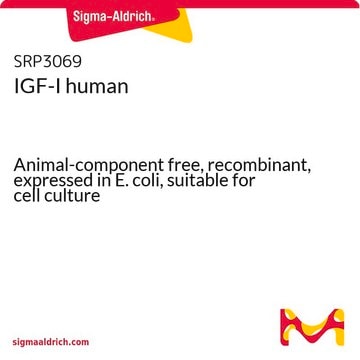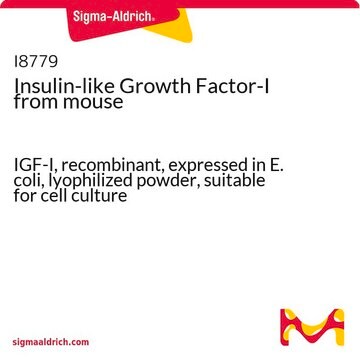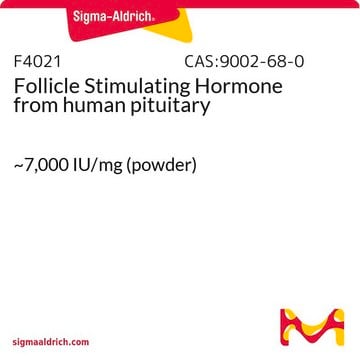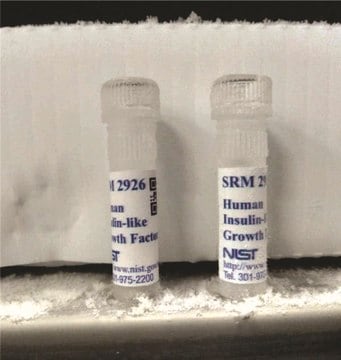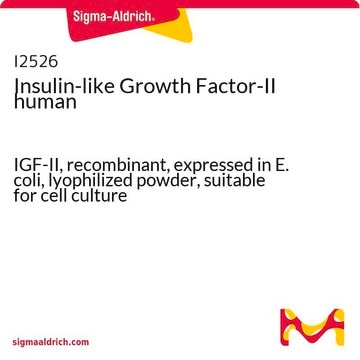I3769
Insulin-like Growth Factor-I human
IGF-I, recombinant, expressed in E. coli, lyophilized powder, suitable for cell culture
Synonym(s):
IGF, IGF-I, somatomedin c
About This Item
Recommended Products
biological source
human
Quality Level
recombinant
expressed in E. coli
Assay
≥95% (HPLC)
form
lyophilized powder
potency
0.1-10 ng/mL ED50/EC50
quality
endotoxin tested
mol wt
~7.6 kDa
packaging
pkg of 50 and 100 μg
technique(s)
cell culture | mammalian: suitable
impurities
≤1.00 EU/μg
UniProt accession no.
storage temp.
−20°C
Gene Information
human ... IGF1(3479) , Igf1(16000)
General description
Application
- in modified Dulbecco minimal essential medium for in vitro culture of testicular cells
- in culture media, to study its effect on steroidogenesis during testicular development
- in culture media for in vitro assay of splenic pro-erythroid cell growth and differentiation
Biochem/physiol Actions
Physical form
Reconstitution
Analysis Note
related product
Storage Class Code
11 - Combustible Solids
WGK
WGK 3
Flash Point(F)
Not applicable
Flash Point(C)
Not applicable
Personal Protective Equipment
Certificates of Analysis (COA)
Search for Certificates of Analysis (COA) by entering the products Lot/Batch Number. Lot and Batch Numbers can be found on a product’s label following the words ‘Lot’ or ‘Batch’.
Already Own This Product?
Find documentation for the products that you have recently purchased in the Document Library.
Customers Also Viewed
Articles
Insulin-like Growth Factors (IGF)
Protocols
Stem cell reprogramming protocols to generate human induced pluripotent stem cells (iPSCs) including viral and non-viral RNA based methods.
Our team of scientists has experience in all areas of research including Life Science, Material Science, Chemical Synthesis, Chromatography, Analytical and many others.
Contact Technical Service